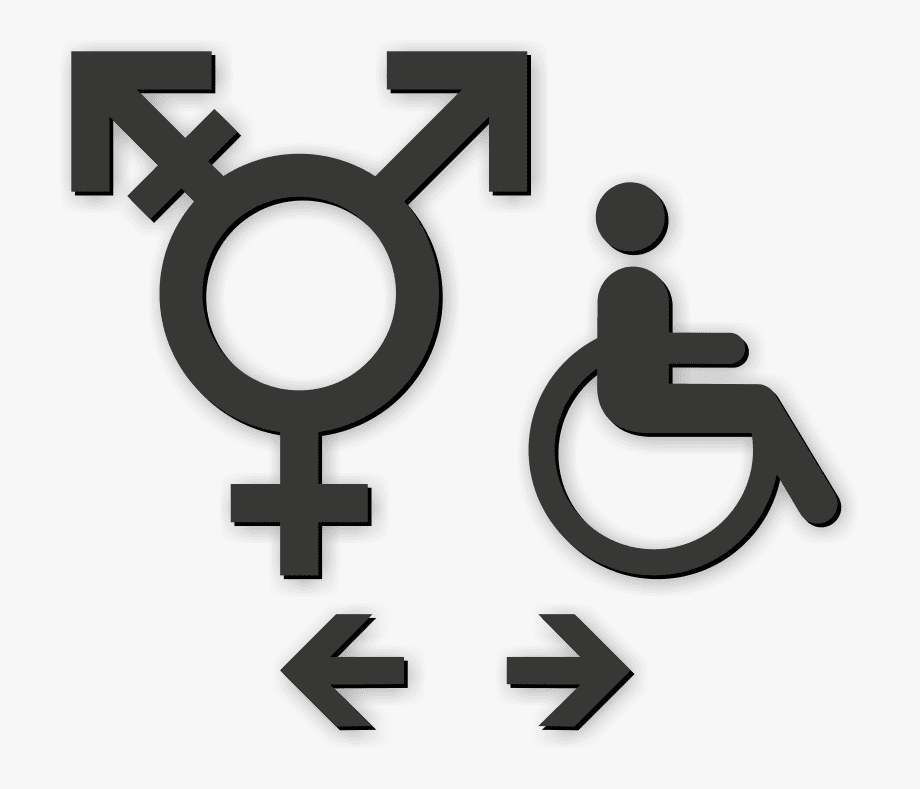Table of Contents
Last Updated on October 16, 2022
Inclusivity in Public Washrooms
As times change so must our environments. Since using the washroom is a necessity for all, Citron Hygiene moves to advocate for inclusivity.
There is much awareness to be made as to how many within our population feel their needs are not met in public washrooms. For example, the United States Transgendered Survey revealed of the 27, 715 people who were surveyed, 59% of participants avoided using a public washroom due to a negative social interaction with other users. In addition to avoiding the washroom, 9% of the survey noted they have also been denied access to the washroom.
When a space is not suitable for all users, both emotional and physical distress become a consequential factor. Emotionally, users may not feel accepted or safe within the environment that offers gendered washrooms. The negative emotional consequences surpass the basic need of not being able to go to the washroom, they allow one to feel disconnected from their community or workspace. The health consequences from having washrooms that are not accessible to all also poses a great risk, if one is unable to use the washroom in a timely manner, health risks such as urinary tract infections and constipation arise.
Adopt a Gender Neutral Bathroom Policy
In addition to making sure all users have a washroom they can safely use, there are additional societal factors that can benefit from the move to inclusive washrooms. Offering inclusive facilities would allow caregivers to have more accessibility in assisting their dependants within the washroom, as separate handicap washrooms are often busy or non-existent. With more facilities adopting gender-neutral washrooms parents who have a child of the opposite sex feel greater comfort and safety taking their child to the necessary washroom.
One of Toronto’s leading consulting firms, A Great Place to Work noted: “Diversity in itself does not create inclusion – an inclusive environment must be intentionally designed, nurtured and supported.” As an inclusive washroom must involve emotional consideration and planning, the logistics of a washroom are also a key factor. Ensuring all facilities have equal and proper hygiene needs met are as critical as ensuring all public washrooms have toilet paper. Previous staples of gendered washrooms should be made available in all washrooms. For example, common items found in a women’s washroom are considered baby change tables, menstrual care disposal bins and vending machines. Making these items available in all washrooms sends a greater message, that you have considered all users needs and welcome inclusivity.
Making Your Bathroom Gender Neutral
Citron Hygiene is proud to stand behind the movement towards inclusive washrooms, as everyone deserves the right to proper washroom hygiene. As we continue our advocate for this notable cause, we are thrilled to see a rising effort by facility management in creating more inclusive washrooms. Well done.
Speak to Citron Hygiene today to make your washrooms more inclusive.
Related posts:
- The List You Don’t Want Your Public Washroom To Be On – A Case Study of Horrible Washroom Experiences
- Beyond the Pride Flag: Is Your Business Providing an Inclusive Space Year-Round?
- Infographic: Personal Hygiene Disposal Create more Inclusive Washrooms
- Where Does Your Public Washroom Rank In The Public Eye?
- Why Elevate Your Washroom Experience (work)
- Bell Centre Selects Citron Hygiene for Washroom Hygiene Services
- Why Creating a Period Positive Washroom Will Bring You More Business
